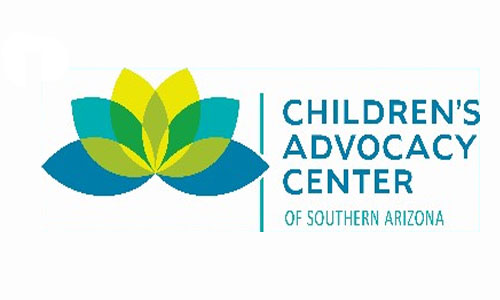Marie Fourdney, Executive Director of the Children’s Advocacy Center of Southern Arizona discusses challenges of keeping children safe during unexpected school closures due to COVID-19 concerns.
Keeping Children Safe and Families Strong
April is National Child Abuse Prevention Month
Tucson, AZ – April is National Child Abuse Prevention Month. This month and throughout the year the Children’s Advocacy Center of Southern Arizona encourages all individuals and organizations to support child abuse and neglect prevention efforts. One month is not enough to solve the serious and widespread issue of child abuse and neglect, however, the attention traditionally generated by community activities in April is an opportunity to energize and expand prevention efforts throughout the year.
In light of the current COVID 19 Coronavirus situation across the nation, the Children’s Advocacy Center has developed policies and practices to keep children and families safe when visiting the Center, as well as cancelling or postponing planned community activities during April, Child Abuse Prevention Month.
While the response to the Coronavirus is essential to help curb the spread in our community, it could also be creating unintended consequences that may put children at risk.
As school districts across the state send students home for early or extended spring breaks to slow the spread of the virus, Marie Fordney, Executive Director of the Children’s Advocacy Center, expresses her concerns. “This perfectly sensible and responsible approach to the virus is actually quite dangerous for some children. When children are in school, mandatory reporters who can respond to signs or disclosures of abuse surround them,” says Fordney. “When they are not in school, some children are suffering abuse or neglect with no one to protect them. Unfortunately, not all children are safe at home.”
“We want everyone to take responsibility for the safety of children,” says Fordney. “If you see a child being hurt – even at the store with someone you’ve never met – call 911 so the authorities can make sure that child is okay.”
With rising concerns about COVID-19, we still don’t know what the full impact will be on children. For example, 34 TUSD schools provide free meals to approximately 35,000 children who qualify for the program, and many of those students receive 2 or 3 meals per day. How do those children eat when they are not in school?
Fordney hopes we all remember that every family has strengths, and every family faces challenges. When parents are under stress – the car breaks down, job loss, a child’s behavior is difficult, having to navigate a community health crisis, or even when a family is experiencing a positive change, such as moving to a new home – sometimes it takes a little help to get through the day. Families can stay strong by doing several different things. The following is adapted from the US Dept. of Health & Human Services – Building community, Building hope.
Families should show how much they care for each other by taking time at the end of the day to connect
with each other – give children a hug, a smile, or a few minutes of listening and talking – perhaps about a child’s questions about the COVID 19 situation.
Parents should learn about parenting and child development. Explore parenting questions with your family doctor, your child’s teacher, family or friends. Consider taking a parenting class. Parents can build their own ability to bounce back from challenges. Share your feelings with someone you trust, and surround yourself with people who support you and make you feel good about yourself.
Parents should make social connections – friends, family and neighbors who help and provide emotional support when needed.
Parents should know where to find help when they need it. Make a list of people or places to call for support, before a crisis hits.
Make sure children know they are loved, feel they belong, and are able to get along with others. Talk with your children about how important feelings are; teach and encourage children to solve problems in age-appropriate ways; and provide regular routines, especially if they are not in school.
Children’s Advocacy Center of Southern Arizona Website: https://www.sacacenter.org/









